| Spotlight
L'art de la cuisine
Sumaiya Ahsan Bushra
Photos: Yamin Tauseef Jahangir
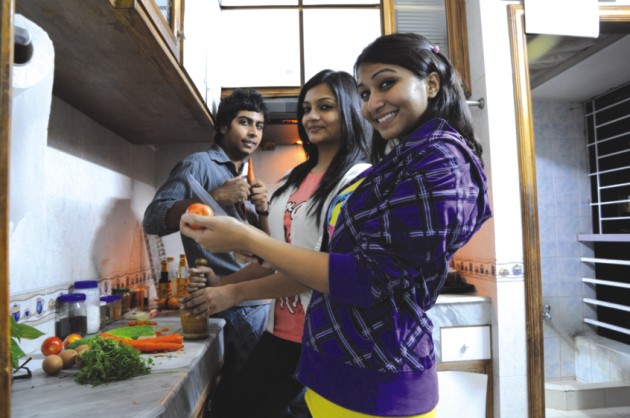
In the eyes of this generation, cooking is perceived as an art. A dash of ingredients, a pinch of patience and an innovative mind are nearly all one needs to create something brilliant.
Through the course of time, the concept of cooking has evolved in our country from its traditional definition into something more exotic and, to some extent, adventurous. For a nation, like ours, cooking and eating is celebrated in almost each and every household. Be it Pahela Baishak, Eid, Durga Pooja or New Year, we love to cook and eat everything and anything from Italian spaghetti bolognese to Bangladeshi Panta ilish. Such culinary rituals are also religiously practised by our Bangladeshi youth (both boys and girls), who not only indulge in eating but also consider cooking as a hobby, at times a mere survival tool and in some cases, as a profession.
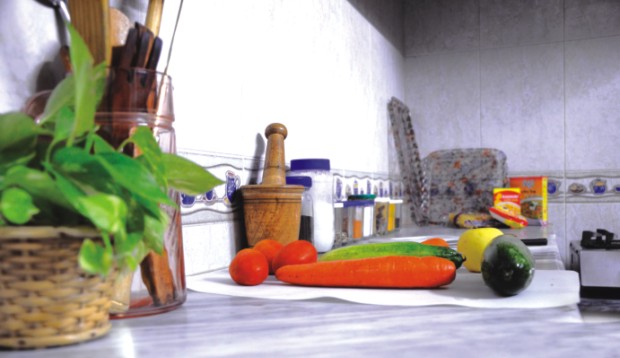
For some young men, like Issaam Ahmed, who is a student of the Bangladesh Flying Academy, cooking is all about being innovative. “I grew up watching my relatives and my mom cook with a lot of passion. I was always interested in their knowledge of spices and their willingness to experiment with all sorts of food,” expresses Issaam. For him, cooking is not only a fusion of spices but rather it is a refined art.
“I also keep in mind the health factor while I cook as I believe healthy food can be mouth-watering too!” he continues. However, for him cooking is also a hobby. Isaam tries almost all types of cooking, starting from pizza, lasagne, steak, hunter beef, kebabs to Hyderabadi biriyani.
Similarly, Farah Tarannum, a student of English at North South University, explains how she just needs an excuse to cook. “I cook when I am hungry, I love noodles and I literally live on it at times. I also like cooking traditional deshi items like different kinds of curries - be it chicken curry or beef. At times, on rare occasions, when I have friends over or relatives visiting, I try making different items,” opines Farah. Cooking, to her, is mixing whatever she can find around her kitchen and also something one can completely indulge in and go crazy over. While to Maleeha Mazen Khan, an A Level candidate, cooking is something that pleases the mind. It is all about playing around with a wide range of items. She says, “With one single vegetable, a variety of dishes can be prepared.
The entire idea of creating a thousand dishes within the boundaries of a few ingredients truly intrigues her.
In addition, Fahmim Ferdous, a student of EEE at AIUB, opines that he enjoys cooking and that the taste of his own creation and that of others, make him feel good. Even though, he is not much of a cooking enthusiast, to him it is all about trying different combinations of food. “It's probably my fourth hobby, but I certainly do enjoy cooking and it feels good when I get an honest appreciation from people regarding my culinary skills.”
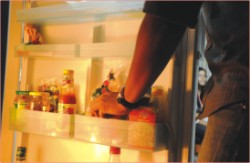 These days, young girls are also starting to take up cooking, not just to become a good homemaker in the future but also to change the traditional perspective of society. They are now preparing to become multi-taskers by establishing themselves at work and also at home. With this idea in mind, a young girl of fifteen, Syeda Tasneem of Udayan High School expresses the joy she takes in cooking. “I think cooking is an experimental art. It's like creating something new everyday! I personally like making a lot of homemade snacks as well as Bangladeshi dishes like shutki bhuna and spicy beef masalas!” says the teenager. In addition, she explains how the youth of our generation, both boys and girls, should take up cooking. It should not simply be viewed as a female activity. Rather, boys and girls should be open to taking up cooking as a hobby and a profession. These days, young girls are also starting to take up cooking, not just to become a good homemaker in the future but also to change the traditional perspective of society. They are now preparing to become multi-taskers by establishing themselves at work and also at home. With this idea in mind, a young girl of fifteen, Syeda Tasneem of Udayan High School expresses the joy she takes in cooking. “I think cooking is an experimental art. It's like creating something new everyday! I personally like making a lot of homemade snacks as well as Bangladeshi dishes like shutki bhuna and spicy beef masalas!” says the teenager. In addition, she explains how the youth of our generation, both boys and girls, should take up cooking. It should not simply be viewed as a female activity. Rather, boys and girls should be open to taking up cooking as a hobby and a profession.
While some consider cooking as an art, others view it merely as a survival tool. Living far away from home, in a distant land, where one can rarely avail homemade exclusive and scrumptious concoction of bhortas and polaos, one is bound to learn how to cook. Some do it out of sheer necessity and do not quite amuse themselves in doing so. While others eventually fall head over heels in love with cooking, having taken it up initially out of desperation. It becomes an obsessive idea to them. Such was the case with Azfar Habib Khan, a student at Bard College in USA.
“Cooking is a means through which I can escape the monotonous cafeteria food. It is a means by which I can really relax. After classes or a day of working I actually wind down by cooking. It is never troublesome for me, whether it is an express breakfast of eggs and turkey at the crack of dawn or khichuri and bhuna beef at 3 am in the morning,” says Azfar. “I need to cook to feed myself and, in many occasions, my room mates as well. I cook pretty much whatever recipe catches my fancy, but that doesn't mean they turn out well! To this day I am best at cooking Bangladeshi and Indian cuisine, simply because I have seen them made the most and also because of my familiarity with their recipes,” explains Azfar.
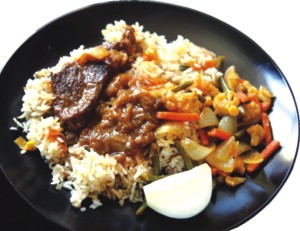 |
Photo Courtesy: Rajiv Ashrafi
Mouthwatering creation are hard to say no to |
In a similar way, having matured as a fairly decent cook from an amateur, Issaam says, “I stared cooking out of necessity during my training days in Rajshahi. The food cooked for the students was so horrible that after two days of starving, I decided to cook for myself. Now after two and a half months of cooking experience I am slowly learning how to use the right amount of spices and daring to experiment with them.”
On a different note, Rajiv Ashrafi, an English Literature Masters student in the United Kingdom, expresses his views on how cooking at times becomes an ordeal for him. “Cooking, for me, is simply making inedible things edible,” says Rajiv. For him it is a survival technique as he is away from home and has no one to cook for him. Also, the cafeteria food is really not something that appeals to his taste buds. However, at times he does enjoy cooking - far more than he expected or ever anticipated. “It makes me feel good when others praise my cooking skills,” adds Rajiv.
With the emergence of television programmes like 'Master Chef,' Jamie Oliver's 'The Naked Chef,' and many others, cooking as a profession has become an international concept. Now-a-days young men watch these programmes in the hope of emulating these stars in the future. Taking it up as a profession does not mean that one has to forsake their education and career. Rather, it is a means of facilitating one's path into the world of cooking simply because it is something that eases the nerves as well as something that one truly and passionately can engage oneself in doing.
“If I ever had the opportunity to train under a proper chef, I think I would consider being a professional cook someday,” says Farah.

Similarly, Maleeha opines, “I would probably consider taking it up as a profession in the future. There is just so much mystery in cooking!” Some young men, however, elaborated on how disastrous it would be if they take up cooking as a profession. “Professional cooking is extremely stressful, although my loved ones say I will make an excellent chef, if I take it up seriously. Besides, the pay scales for actuaries (what I am studying to be) is much better,” says Azfar.
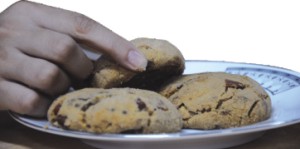 |
Munchies are easy to make and can be enjoyed any time of the day |
In a society like ours where conventional thoughts and ideas exist, the older generation has always confined the art of cooking to traditional and cultural dishes. However, the younger generation has a breathtakingly fresh outlook on it. They seem to be more thrilled about the idea of experimental food combos as well as the concept of modifying the traditional dishes, and are determined to take Bangladeshi cooking to a whole different level. Moreover, to them, it is not just the job of a woman. They are of the belief that it should it be confined to any particular sex. There is nothing feminine about cooking and in fact the world's top chefs are probably all men. So, such cultural stereotypes should indeed be rejected.
In conclusion, cooking is not something one just survives on but rather it is a fascination one strives on. It is about the creation of a stimulant that reaches the mouth and touches the most delicate of senses. It is about re-inventing and re-creating something completely exclusive and authentic. It is an art where the frying pan is your canvas and the ingredients, your palette!
Care for a Drink?
Food enthusiast Ahmed Bhuiyan
shares his unique concoctions.
1. The Hot Not Toddy: Sometimes the overly chemical taste of mango juice in a bottle just does not cut it. Regular tea feels a bit bland and the feel for a frappucino has faded. So what do you do to satisfy your thirst in a new and interesting way? Experiment of course!
Now before you pour that suspiciously labelled bottle into the nearest drink you have, how about sitting down and trying one of these concoctions?
For those of you who are already feeling the nip of winter at your heels:
Fill a glass with a tablespoon of honey, a teaspoon of lemon juice, and some grated cinnamon, cloves, and nutmeg. Then top off the cup with steaming hot tea. Stir, garnish with a lemon juice, and then enjoy while wrapped in a warm blanket.
2. Hot Spiced Cider: For those of you who are in the mood for something other than warm tea, here's another winter beating drink.
Take one litre of apple juice and put it in a large saucepan. As you are warming it up, add one-eighth cup of sugar, five whole cloves, and four sticks of cinnamon. Bring the concoction to a boil and let it boil for about five minutes or so. After that pour into a glass and drink it down with a few orange slices, which are now happily, back in season.
3. Mango Julius: Finally, for those who are still thinking that it is too darn warm for all this tea and stuff, here's a nice little drink you can make.
You need a cup of mango juice, two ounces of milk, a teaspoon of vanilla extract, a scoop of vanilla ice cream, and two tablespoons of sugar (if you wish). Drop it all into a blender with some ice and blend away. If it is too thick, add some more juice, if you think it is too thin, add some more ice cream. Once it is to your liking of thickness, pour and drink!
(Bhuiyan is a Lecturer of English at the North South University)
Cooking as a Profession
Rakibul Hasan
Star Campus tracked down two renowned chefs of Dhaka -- Sunil Francis Botleroo, the Executive Chef of Best Western La Vinci Hotel and Abul Kalam, Head Chef of Star Kebab and Bakery, who successfully made their hobby of cooking into a career.
 |
Abul Kalam, the chef of Star Kabab has been
in this profession for a long time |
Sunil Francis Botleroo, says that he had decided to start a career in cooking after completing his Higher Secondary Certificate exams from Notre Dame College, years ago. “Cooking as a profession was an alien concept when I started out,” he says. “But since I was aware of the opportunities available in the culinary world outside Bangladesh, I decided to pursue my career as a chef. I went to Mumbai for training in professional cooking. After working with the chefs of some major restaurants in Mumbai, I headed for the UAE to get the state-of-the-art training in cooking. My dream came true in Abu Dhabi when I got the opportunity to working at the 'La Mammo' restaurant in Hotel Sheraton in Abu Dhabi. 'La Mammo' is one of the most famous Italian restaurants in the UAE. I received training in Italian cuisine for more than a year. After completing my training, I moved to Italy, the culinary heaven of the world. It was in Italy that I began my career as a chef in a famous restaurant 'Le Meridian' in Rome. I worked there for many years before joining as the Executive Chef of the La Vinci Hotel in Dhaka.”
According to Chef Botleroo, a chef earns a lot of money both at home and abroad. Today, the whole idea of hotel and tourism is developing all over the world. Thus, the demand for quality chefs is on the rise. Amateurs who want to be professional chefs need to receive training from well-known institutions. Bangladesh Parjatan Corporation offers training programmes to amateur cooks in Bangladesh. Interested students can also make their way to countries like the United Kingdom or Australia where the most respectful culinary schools of the world are situated, which provide students with international standard training for aspiring chefs.
Abul Kalam says that he had not acquired any specialised training in cooking. According to him, it is the love for food and cooking that made him what he is today. After completing his primary education, Kalam got acquainted with cooking in the restaurants of his locality. Ustad Jahir, a Pakistani head cook of a restaurant, laid the foundation of Chef Abul Kalam's culinary expertise. From Ustad Jahir, Abul Kalim acquired all the skills to make well-known local cuisines into delicacies and learned the proper use of all the spices. According to Chef Kalam the profession of a chef comes with great responsibility. Young people who want to make a career in professional cooking should work hard and follow the steps of the senior chefs to achieve perfection in cooking. At the same time they need to experiment with spices and other ingredients while cooking if they want to bring new tastes in their food. “It is a great pleasure for me to satisfy the hungry palates of customers and if someone appreciates my cooking from the heart, it feels me with great pride, says Chef Abul Kalam.
|
Copyright (R) thedailystar.net 2010 |

